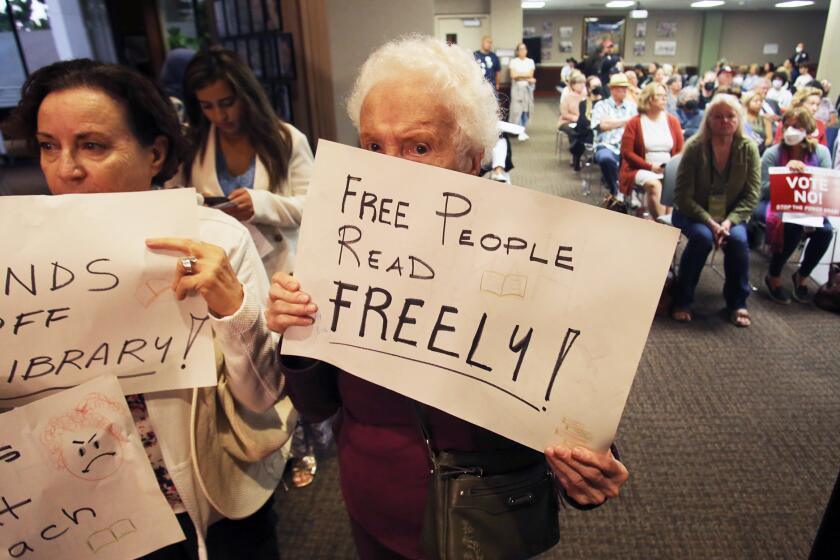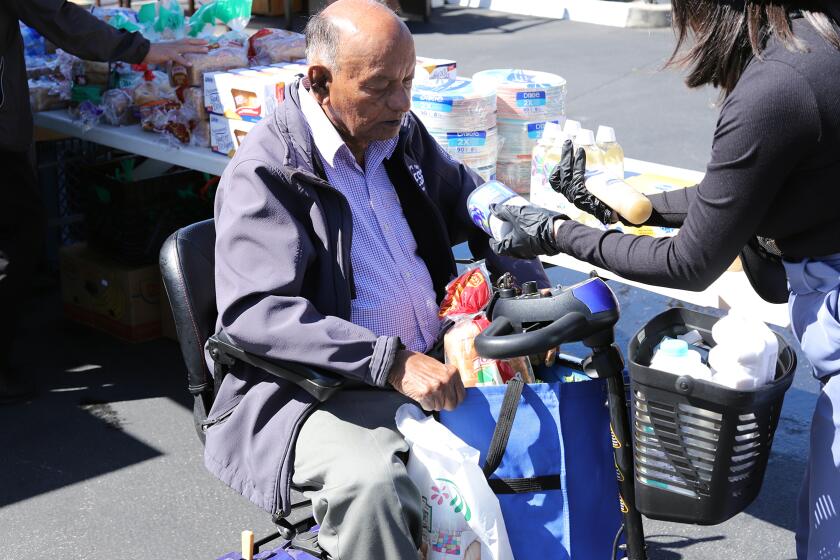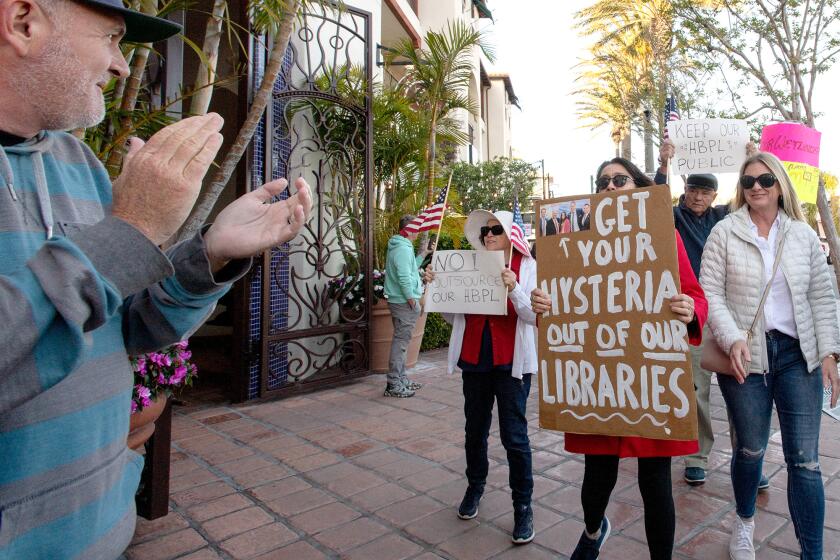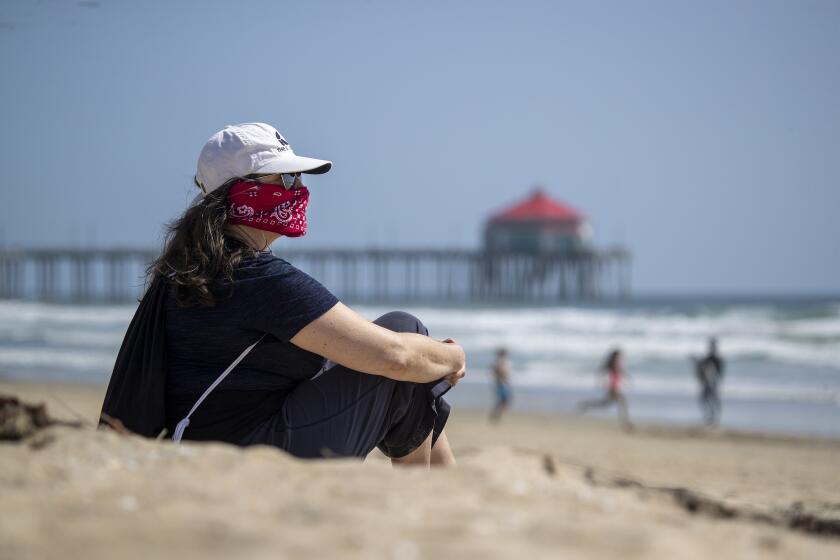Commentary: Polystyrene ban makes perfect sense
As the debate over the proposed ban on single-use polystyrene food ware and beverage containers heats up in Huntington Beach, it’s time for facts.
Unfortunately, a lot of misinformation has been swirling around about polystyrene, sometimes referred to as Styrofoam.
As an educator with the Huntington Beach Union High School District, lifelong surfer and active member of the Surfrider Foundation, it is my job and my passion to educate students and the public about the numerous threats to our local environment, marine ecosystems and human health.
I have spent hundreds of hours researching data from top scientists around the world and spent thousands of hours on our ocean, not only surfing but also cleaning up debris that washes up on the beaches. I feel as though I have intimate knowledge about polystyrene pollution.
I respect local policy makers who fear that a ban would be just another form of government control, but sometimes local legislation is required to guide producers and consumers toward sound decisions that benefit public health and the environment.
Where would we be today if the government didn’t step in and investigate the safety of Bisphenol A (BPA), one of the most highly toxic substances used in many of our plastic products?
Now let’s look as some of the misinformation that has been fed to the public recently regarding polystyrene.
•It’s recyclable. Not really. While clean expanded polystyrene foam used for protective packaging is recyclable and can even be turned into products like surfboards blanks, food ware that is moist or soiled with food is rarely recyclable.
Since I deal closely with our local disposal company for my school’s recycling program, I know firsthand what is and is not recyclable. Unfortunately, neither consumers nor our disposal company typically wash and dry the takeout containers which results in a majority of that material being sent overseas to be landfilled, incinerated, or otherwise disposed of.
•A ban will cause financial hardships on local businesses. At Tuesday’s City Council meeting, Councilwoman Connie Boardman said four local cities that have enacted a similar ban have not gotten negative feedback. She read a letter from the Newport Beach Restaurants Assn. stating that Newport’s ban was “met with little resistance from the restaurant community.”
Alternative packaging costs two to five times more. Not true. We checked the prices at a restaurant supply company and found 1,000 Styrofoam cups cost $43.98 while 1,000 paper cups cost $53.99, hardly two to five times the price.
Keep in mind, these comparisons were from retail stores. If restaurants would shop around at wholesalers and use their purchasing power, they could reduce these costs even further, costs that can easily be absorbed by the customer with very little notice.
Now let’s look at some scientifically based facts on the issue.
Environmental fact: Polystyrene is the second most common form of debris found on California beaches, and the manufacturing of it is the fifth largest creator of hazardous waste in the U.S. (Harvard University).
Plastic marine debris adversely affects 267 species globally, including humans.
West Coast communities are spending more than $520 million combating litter and curtailing marine debris (EPA.gov).
Numerous carcinogens including formaldehyde, benzene and styrene are found in polystyrene, and they are ingested after they come into contact with hot or acidic food or liquids (Earth Resource Foundation).
So let’s not narrowly focus our attention on this issue with false claims that it would limit consumer choices and negatively impact businesses or that it is a misguided attempt at social engineering. The only consumer choice this would limit is whether you get carcinogens with your takeout food.
As for social engineering, if seatbelt and helmet laws that were designed to protect the public are a form of social engineering, then I guess we’re on the right track. Why don’t we look at the big picture here that includes cost to our community, environmental impact and adverse effects on human health.
While I agree that a surfboard made from recycled material would be a sign of an eco-conscious community, I think preventing the toxic, polluting material from reaching the public in the first place is much more effective.
The global extent of this problem starts right here in our community, so let’s start by banning polystyrene food ware in Huntington Beach and stand up for our Surf City image.
GREG GORAN is an educator for Huntington Beach Union High School District, serves on the executive committee for Surfrider Foundation and is a Seal Beach resident.
All the latest on Orange County from Orange County.
Get our free TimesOC newsletter.
You may occasionally receive promotional content from the Daily Pilot.



